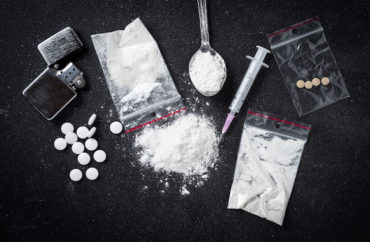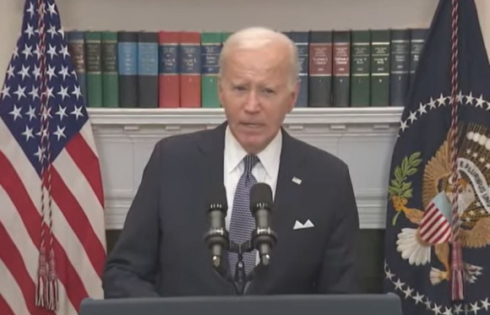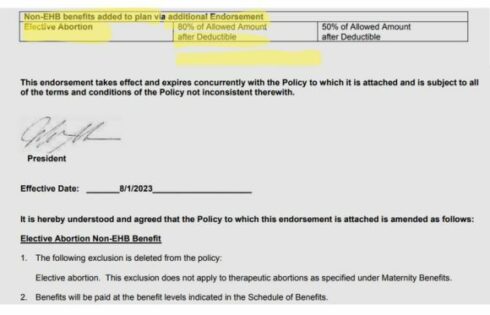
Brown would be ‘irresponsible’ to authorize illegal drug activity, said a school official
Brown University recently canceled a free, anonymous, student-led service designed to test the composition of illegal drugs to verify what was in them. A university spokesman said the drug testing was halted due to concerns of campus policy violations, as well as violations of federal and state laws.
The program offered by the campus chapter of Students for Sensible Drug Policy was shut down by Brown University on Sept. 20, The Brown Daily Herald reported earlier this month. The Herald reported that SSDP appealed the decision to cancel their group. That appeal was reviewed by the school’s Chief Risk Office, along with “representatives of Student Activities Office, the Office of the General Counsel, Environmental Health and Safety and the Department of Public Safety.” It was ultimately rejected.
Jackson Kealey, the president of the student group, did not respond to queries via Facebook for this story. Reached for comment via email, campus spokesman Brian Clark explained to The College Fix what the drug testing program consisted of.
“[The program] is not drug testing in the sense of a biological test that determines whether an individual has used a particular drug in the past — it is the testing of an actual substance to determine what that substance is comprised of. To test a substance, one needs to have that substance in hand,” Clark said.
“For Brown to have authorized the operation of this program would have been the equivalent of offering permission to students to violate not only Brown’s code of conduct, but also a range of federal and state laws regarding possession of illegal drugs. That would be irresponsible on a number of levels — to those students directly, to potentially jeopardize state and local funding to Brown and other Brown students if we were to authorize illegal activity,” he added.
School says program may have ‘aided’ or ‘abetted’ drug use
The drug testing service “helped identify substances and verify their exact composition,” The Herald reported. Kealey told the newspaper: “It’s a lot better for people to know what they are putting in their body (so) they can then do it more properly and they can know what to expect.”
Clark said the service would promote behavior outlawed by both the school and federal policy.
“Specific violations of the Code of Student Conduct that applied in this case include ‘D.7a Drugs,’ which prohibits illegal or unauthorized possession or use of drugs, and ‘D.3 Collusion,’ which prohibits knowingly or recklessly aiding, abetting, assisting, or attempting to aid or assist another individual to commit a violation of the code,” he told The Fix.
The Herald reported that the group “tried to address the University’s concerns” in the appeal by proposing “marketing changes to address the criticism that testing students’ drugs would suggest that there were no risks associated with the substances.”
ACLU says program’s cancellation ‘short-sighted,’ cites university’s drug research
Steven Brown, the executive director of the Rhode Island chapter of the American Civil Liberties Union, criticized the university’s decision to cancel the testing.
“We…believe that the elimination of this program is short-sighted. Across the country, medical professionals and others are recognizing that a focus on harm reduction, rather than prohibition, is a critical way of dealing with the nation’s drug problem. That is precisely what it appears the SSDP program was aimed at,” Brown told The Fix via email.
“In fact, Brown University itself seems to recognize this point,” he added, citing the university’s announcement this week of “new research designed to assess the effectiveness of fentanyl test strips in reducing drug overdoses.”
University’s mixed message on drug usage
Though the university shut down the drug testing program out of concern for school and federal policy, the school has offered seemingly conflicting messages on drug usage in the past.
As The Fix reported last year, the school stipulates that students are forbidden from taking illegal drugs, but it also offers them information on numerous illegal substances so that they can make “safer” choices if they choose to ingest them.
The school also offers students advice in recognizing the “problematic” usage of such substances, subtly implying that the institution believes there can be non-problematic instances of illegal drug consumption.
Asked about that literature on its website, Clark told The Fix on Sunday that Brown is “not condoning illegal activity, but rather recognizing the reality that individuals will make their own choices, and therefore offering education, advice and counsel within the parameters of the law.”
MORE: At Brown University, mixed messages on illegal drug use
MORE: University’s wellness center approaches drug use with ‘curiosity’
IMAGE: Leszek Czerwonka / Shutterstock.com
Like The College Fix on Facebook / Follow us on Twitter





Please join the conversation about our stories on Facebook, Twitter, Instagram, Reddit, MeWe, Rumble, Gab, Minds and Gettr.